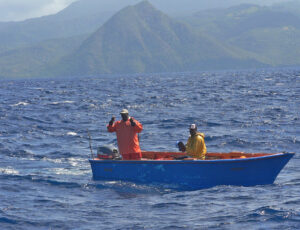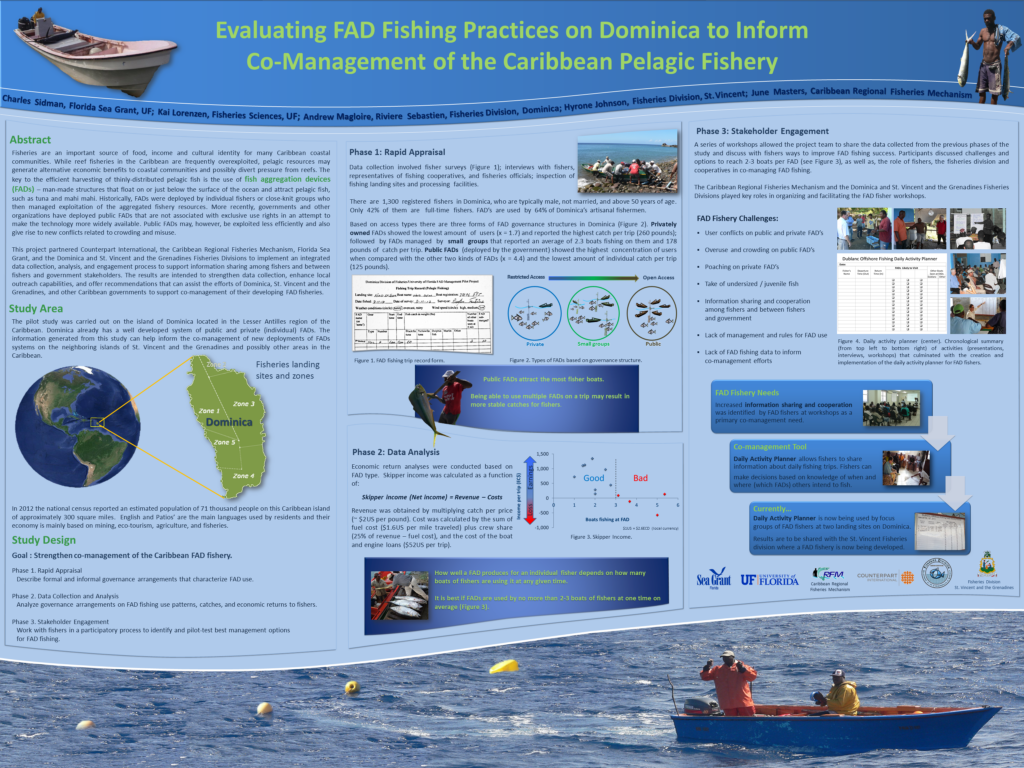
Fisheries are an important source of food, income and cultural identity for many Caribbean coastal communities. While reef fisheries in the Caribbean are frequently over-exploited, pelagic resources may generate alternative economic benefits to coastal communities and possibly divert pressure from reefs.
The key to the efficient harvesting of thinly-distributed pelagic fish is the use of fish aggregation devices (FADs) – man-made structures that float on or just below the surface of the ocean and attract pelagic fish, such as tuna and mahi-mahi. Historically, FADs were deployed by individual fishers or close-knit groups who then managed exploitation of the aggregated fishery resources. More recently, governments and other organizations have deployed public FADs that are not associated with exclusive use rights in an attempt to make the technology more widely available. Public FADs may, however, be exploited less efficiently and also give rise to new conflicts related to crowding and misuse.
Florida Sea Grant is working with the fisheries divisions of Dominica, and St. Vincent and the Grenadines, along with other program partners to collect information from fishermen on their use of fish aggregation devices. When analyzed, this information will give resource managers and fishermen new insight into best management practices for sustaining important fisheries. The results are intended to strengthen future monitoring of FAD fishing activities, as well as outreach with fishermen.
